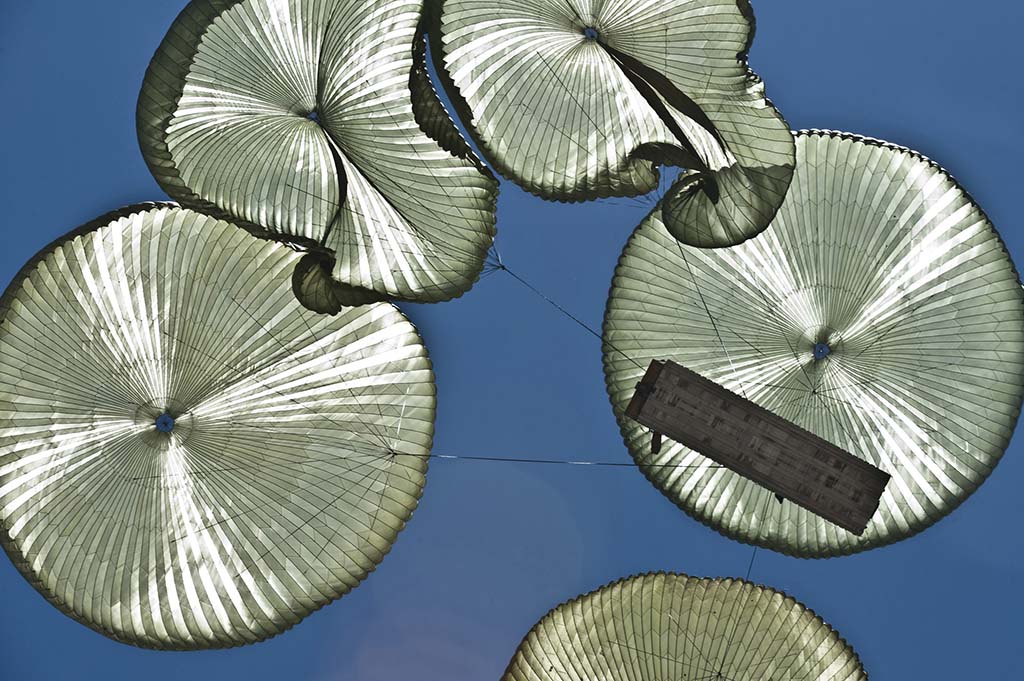
yet2 is supporting NASA in their search for strain sensor technologies and tech providers that can measure large strains and associated load data of parachute canopies during the period of deployment (while the parachute is actively being used during a jump/landing). NASA is seeking a variety of strain sensing and measurement technologies that (1) could be applied to soft/flexible fabric substrates, (2) can measure elongation of 10-40% (ideally more), and (3) do not interfere with the function and performance of the parachute. Only solutions that are commercially available or that could be supplied in the next several months are in-scope for this search.
Requirements
Strain sensors must have the following characteristics:
- Capable of measuring strains up to 10% – 40% elongation
- Compatible with lightweight flexible / soft / woven / fabric substrates
- A small form factor (< 6×6 inches; smaller is preferred)
Additional Considerations and Future Capabilities include:
- Capable of measuring strain rates from 20%/s to greater than 100%/s.
- Does not induce stiffness or stress in the test substrate
- Accounts for temperature (and remains operational) in range between -90°F to 120°F
- Survive / operate in vacuum (but do not necessarily need to be flight/space rated)
- Minimal hysteresis and drift
- Sample rates up to 1 kHz
- Commercial “Off-the-Shelf” sensors preferred
- Sensors may be single-use or reusable
Know of a Relevant Technology and Company?
If you would like to submit an innovative technology and associated company to be considered by our client, NASA, for partnership, please contact Alex Roberts (aroberts@yet2.com).
Related Tech Needs
Seeking: Fault Detection and Prognosis Technologies
Photo Credit: David Mark from Pixabay
